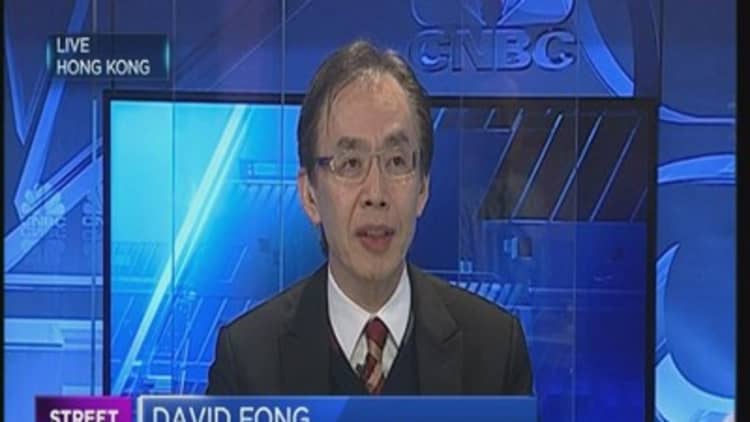Allegations of China abducting associates of a Hong Kong bookstore have gained momentum in recent days, with one former Hong Kong police official saying it may not be an isolated incident.
Five members of a Hong Kong publisher specializing in books critical of Chinese Community Party elites were reported missing last year, triggering widespread speculation that mainland officials had spirited them across the border as a silencing mechanism.
"This case has grabbed international attention but I'm aware of several incidents of a similar nature that have occurred," said Steve Vickers, former head of the Royal Hong Kong Police Criminal Intelligence Bureau and current CEO of political and corporate risk consultancy Steve Vickers & Associates.
"There have been a series of other incidents involving booksellers, which I've had a look at, where people have come across [the border] to have discussions with them."
Sometimes, those chats result in booksellers being paid to cease and desist their publications but in other cases, they are forced across the border, he explained.
While no other incidents have been reported in international media in recent years, Vickers—who deals with kidnapping and ransom negotiations—says he's aware of a number of those cases. However, he was unable to provide further details in order to protect identities.
Recent developments pertaining to the current case have further sparked suspicions of China's role in the disappearance.
Earlier this week, one of the booksellers—Swedish citizen Gui Minhai who vanished from his home in Thailand last October—appeared on China Central Television to explain that he voluntarily went to China to turn himself in for a 2004 drink-driving accident.
The confession has been greeted with skepticism locally, with pro-Beijing lawmaker Jasper Tsang saying the confession wasn't enough to calm public fears.
Then on Tuesday, China confirmed that Lee Bo--one of the five men last seen in Hong Kong in December --was on the mainland. Following the news, Hong Kong chief executive Leung Chun-ying said his administration was seeking a meeting with Lee.

"From a Chinese point of view, this is a pretty regrettable story. It comes at a bad time. Hong Kong is questioning the value of its institutions in the post-Umbrella Movement, and other issues, such as Jack Ma's acquisition of the South China Morning Post, have created a feeling of greater intrusion and control by the mainland," said Vickers.
"If the men were dragged across the border, it is an egregious breach of Hong Kong's One Country, Two Systems," he said, referring to the constitutional principle that grants Hong Kong high degrees of autonomy from the mainland.
The affair has attracted interest in the U.K., U.S. and Switzerland and comes amid heightening worries about transparency in China. As the world's second-largest economy deals with currency swings, investors say a lack of communication from the central bank has sparked market confusion about Beijing's policy intentions.
Given the international attention, Vickers believes Beijing could eventually offer the men some kind of settlement in an attempt to close the matter. Leung has said the event would be a gross violation of sovereignty if China was involved.


